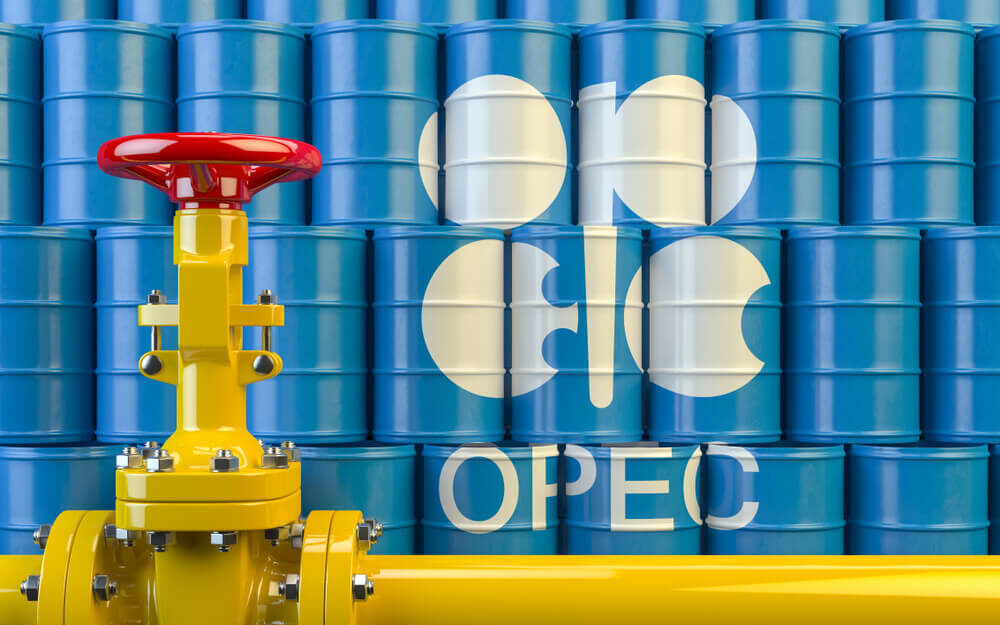The countries that make up the OPEC oil-producing cartel are meeting Thursday to decide whether to cut down on their production and push up prices of fuel and energy around the world.
The group is expected to prolong production cuts they’ve agreed on for the past three years, though some experts believe they could deepen them further to support prices. The price of crude has been capped in recent years by a resurgence in supplies from countries outside OPEC, particularly the United States.
They’re negotiating through a tangle of tensions driving members in competing directions.
Saudi Aramco’s stock market debut, which will get off the ground Thursday when the state-run oil giant prices its shares, has put Saudi Arabia in a precarious position as it bets on what volume of oil production will hit a sweet spot for prices, with the added pressure of considering the interests of its shareholders. The nation is already bearing the burden of the largest share of OPEC’s production cuts.
But some nations such as Iraq have been ignoring the agreement and producing more than their allotted amount.
Asked about the prospects of a deal upon arriving for the meeting, Saudi energy minister Prince Abdulaziz bin Salman said only: “Keep praying.”
Analysts note that if countries are already not complying with the current agreement, voting for more cuts could be pointless.
“I think the Saudi position is they’re willing to cut more if needed, but they want better compliance,” said Bhushan Bahree, executive director of global oil at research group IHS Markit.
Outside the OPEC building, environmental activists were holding a small demonstration against the use of fossil fuels. The future of such carbon-intensive fuels is one of the key topics of a big UN meeting in Madrid on how to fight climate change.
Brent crude oil hovered around $63 per barrel Thursday. Prices have fluctuated throughout the year, reaching nearly $75 per barrel in April after U.S. sanctions on Iran and Venezuela limited world supply, but lingering trade tensions between the U.S. and China dampened economic expectations, pushing prices back down.
West Texas Intermediate, the U.S. benchmark crude, was trading at around $58, and its price followed a similar trajectory throughout the year.
As it stands, OPEC nations have agreed to cut production by 1.2 million barrels per day through March 2020, and most analysts expect OPEC nations to extend those production cuts until at least summer.
“If they just keep the existing situation, then you get this massive oversupply,” said Jacques Rousseau, managing director at Clearview Energy Partners.
Rousseau believes OPEC nations will cut production by an additional 400,000 barrels per day to keep supply and demand in balance during the first half of next year, with the cuts made mainly by Kuwait, Saudi Arabia and the United Arab Emirates. But substantial cuts may be difficult to achieve with some OPEC members following their own agendas.
“Iraq has exceeded its production target every month this year,” Rousseau said. “Granted, there’s some unrest going on in the country, but I don’t think they’ll voluntarily reduce.”
Meanwhile, Russia, which is not part of OPEC but has been cooperating with the group on production limits in recent years, has indicated it wants its oil production re-calculated in a way that’s in line with OPEC nations. That could enable it to produce more oil.
And even if members of the cartel cut production, there’s more oil coming online from non-OPEC nations including the U.S., Canada, Brazil, Norway and Guyana, which will more than make up for any drop in production, according to IHS Markit.
The dynamic to watch will be whether Russia and Saudi Arabia will come to an agreement on production levels in the early and middle parts of next year, said Heather Heldman, managing partner at Luminae Group, a geopolitical intelligence firm.
“If something goes awry with Saudi production in the next few months, and there’s a fairly good chance something will happen … Russia’s going to be the first party looking to fill that gap,” Heldman said. “And I think the Saudis know that.”
© The Associated Press. All rights reserved.
